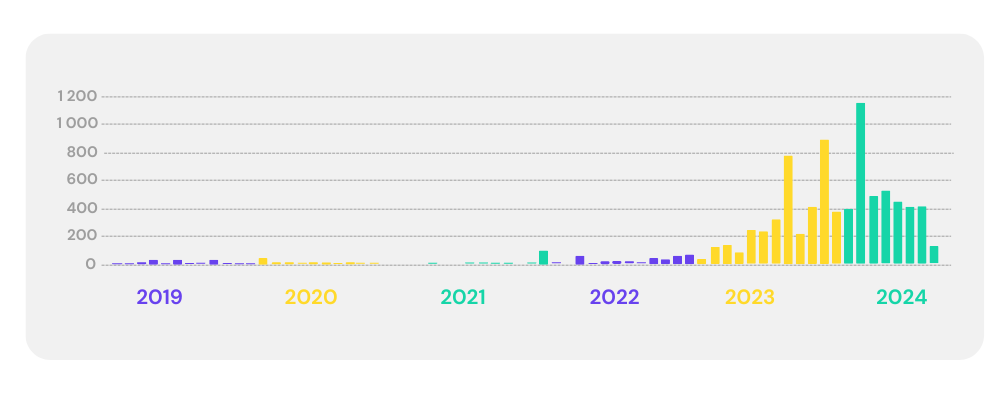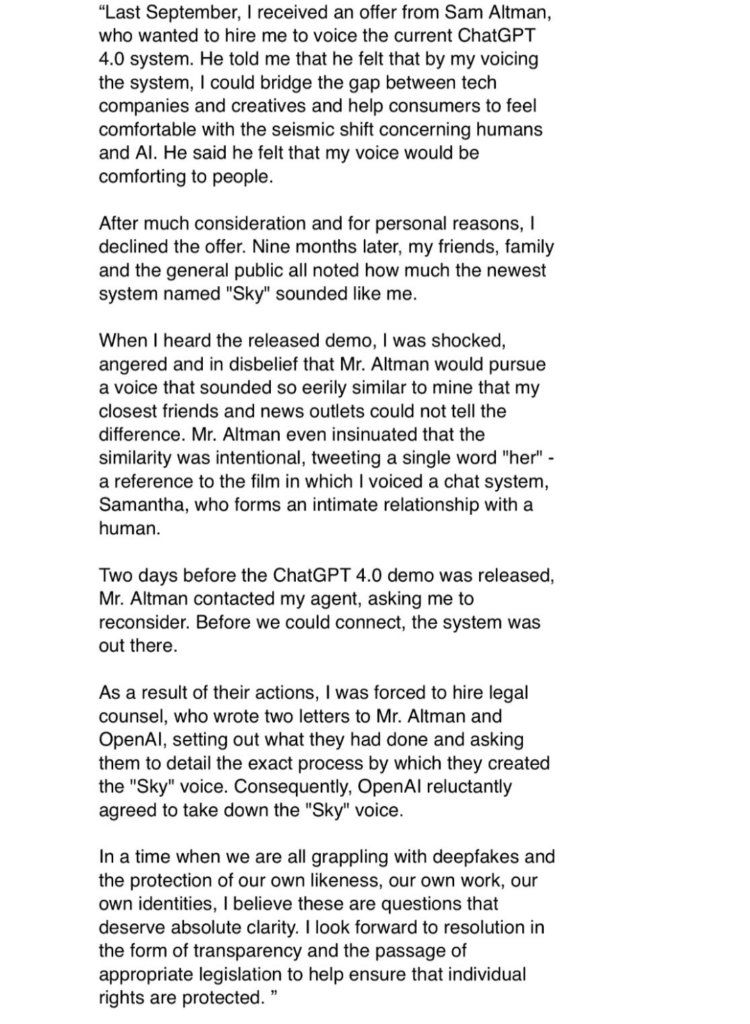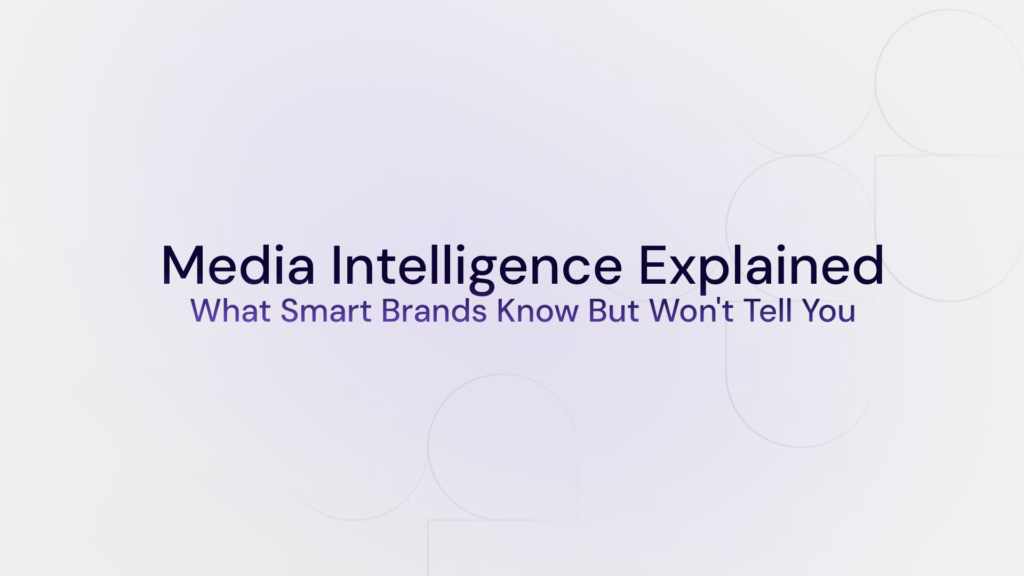4 min read
From “Her” to ChatGPT: Scarlett Johansson’s Voice at the Center of an AI Dispute

The advent of generative AI technology has sparked significant legal and ethical debates, particularly surrounding the use of copyrighted content for training AI models. Media companies and content producers have increasingly filed lawsuits against major AI firms such as OpenAI, Microsoft, and Nvidia, accusing them of copyright infringement and unauthorized use of proprietary material. As generative AI continues to evolve, these legal disputes highlight the broader implications for content ownership, intellectual property rights, and the sustainability of traditional content creation industries.

Semantic Visions’ analysis of data showed a significant increase of reported intellectual property infringement in media, related to AI.
Recently Scarlett Johansson, a US actor, revealed that OpenAI approached her to be the voice behind ChatGPT. When she declined, the company went ahead and created a voice that closely resembled hers. In a statement shared with NPR, Johansson announced she has now “been forced to hire legal counsel” and has sent two letters to OpenAI seeking an explanation on how the ChatGPT voice, named Sky, was developed.
“Last September, I received an offer from Sam Altman, who wanted to hire me to voice the ChatGPT 4.0 system,” Johansson stated. She noted that Altman contacted her agent just two days before the company first showcased the ChatGPT voice, urging her to reconsider.
Altman has expressed admiration for Johansson’s work, citing work as the AI love interest in the Oscar-winning 2013 movie “Her,” where Johansson voices an AI assistant, as his favorite film. Following a recent ChatGPT event, he posted the word “her,” seemingly referring to the voice demo featuring an assistant that sounded remarkably like Johansson.
In a statement to The Verge, Altman clarified:
“The voice of Sky is not Scarlett Johansson’s, and it was never intended to resemble hers. We cast the voice actor behind Sky before any outreach to Ms. Johansson. Out of respect for Ms. Johansson, we have paused using Sky’s voice in our products. We are sorry to Ms. Johansson that we didn’t communicate better.”
OpenAI announced early Monday that it was removing Sky’s voice to address questions about the selection process for ChatGPT’s voices.
Johansson expressed her shock and disbelief over the “eerily similar” voice of Sky. OpenAI maintained that the voice belongs to an actor using their normal speaking voice, but declined to disclose the actor’s identity for privacy reasons.
Sky’s voice has been available since ChatGPT launched its voice mode last September. However, the resemblance to Johansson only became widely noted last week when OpenAI showcased an updated AI model with a more expressive voice, leading to headlines and even a joke on Saturday Night Live.
Here is the actress’ official statement on the matter:

For now, Johansson seeks an explanation. She’s looking for “resolution in the form of transparency” and has requested OpenAI to “detail the exact process by which they created” Sky’s voice. OpenAI CTO Mira Murati previously told The Verge that Sky’s voice was not designed to mimic Johansson. Joanne Jang, model behavior lead at OpenAI, added that the company is “in conversations” with Johansson’s representatives regarding their concerns.
Previously, the Hollywood actress was involved in another legal dispute after discovering an unauthorized deep fake advertisement using her likeness, created by Lisa AI, appeared online without her permission.
Semantic Visions is always tracking the latest news and industry movements related to AI. The company provides real-time insights into the rapidly evolving AI landscape, ensuring that stakeholders remain informed about critical developments and emerging trends. Our commitment to staying ahead of the curve allows them to deliver comprehensive and up-to-date information, helping businesses and individuals navigate the complexities of artificial intelligence and its implications.






